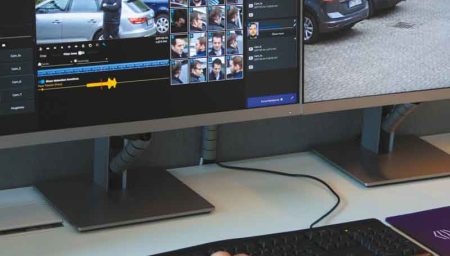Empowering smarter investigations through advanced video analytics

Preventing crime, protecting citizens, and serving the community are at the heart of all law enforcement agencies’ mission. Today’s advanced technologies have the potential to help law enforcement agents streamline and automate administrative tasks—they can free up time to better engage with local residents.
Law enforcement agents are in direct contact with the community and if, for example, there is a burglary, they are first on the scene. Their job is to reassure the victims and to ensure they take down as many details and collect as much latent prints as they can to help solve the crime. As straightforward as this process seems, more often than not, it can be long, tedious, and overly complicated with administrative tasks. Officers are often confronted with tasks that could potentially be dealt with in the field, and yet end up going back and forth between the crime scene and the police station.
But what if there were a solution? A solution that could be used by all law enforcement agents to help ease the burden of tedious errands and even replace manual services and mountains of paperwork by automated processes? This would free up precious time that could be spent helping the community.
To achieve their everyday responsibilities officers should have all the equipment they need—an equipment adapted to fieldwork. Today, high-tech, compact and connected products such as connected devices (smartphone and smartwatches) have the potential to revolutionize the way police officers work.
Let’s have a look at another example; an officer sees someone displaying dangerous driving behaviors on the road, so they pull the driver over. The officer checks the driver’s ID and is able to do a complete verification using an app installed on their smartphone that is linked to the central criminal database.
But what if the driver is a person of interest (POI)? The officer obviously does not want to alarm the POI. Instead of receiving a flashing red message on his screen, the officer’s smartwatch discreetly vibrates, alerting them to take the POI to the police station straight away. This is a perfect example of how the use of advanced technologies and connected devices by law enforcement agents could not only speed up processes, but also help defuse potentially dangerous situations.
Linking the smartphones of law enforcement agents directly to the central database will also allow them to receive alerts. If a person of interest is identified at a place where they should not be, advanced video analytics algorithms can help send this information quickly to officers in close proximity.
Cutting-edge video analytics can also speed up investigations. Detecting someone who has committed a crime is so much easier when an advanced algorithm can follow the trail using filters such as what the person was wearing or their height. These advanced technologies will facilitate locating the offender quickly and save time—time that is precious when a crime needs to be solved.
Streamlining and automating administrative tasks would free up time that could be spent more productively. Empowering law enforcement agents with the high-tech tools that they need would help promote transparency and allow the police to engage with local residents. Crime, unfortunately, won’t suddenly disappear, but with the use of advanced technologies and connected devices a safer future is already on the horizon.
Latest News